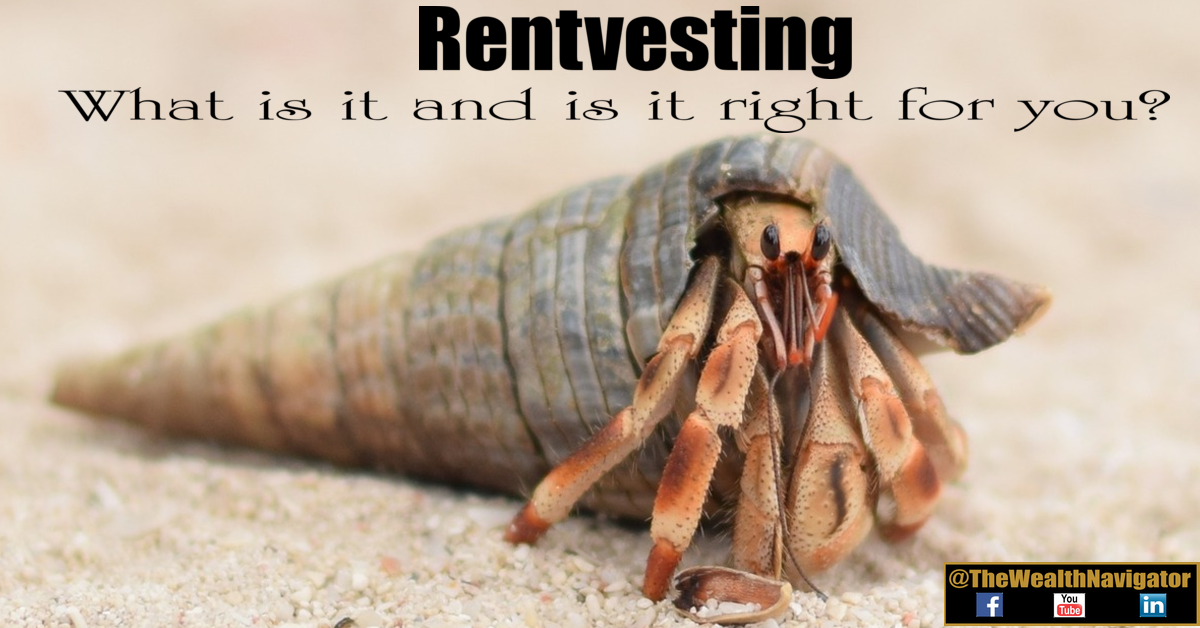
Rentvesting – What is it and is it right for you?
Rentvesting is a term that is recently coming into favour in Australia. The concept has been around for a long time and it is simply investing in property whilst you are renting elsewhere, hence the phrase “rentvesting”. For example you live and rent in Sydney, but own an investment property in Brisbane.
But is rentvesting a valid way to grow your wealth?
Based on my research, for most people it is not.
Why does rentvesting seem a good idea?
On the face of it rentvesting makes sense in a number of areas of Australia.
Firstly, it is cheaper to rent than to pay a mortgage and the associated property costs in most suburbs of Australia’s two major cities, Sydney and Melbourne.
For example you can rent a 4 bedroom house in Leichhardt in inner Sydney suburb, for about $1,200 a week. That same property would cost you about $1.8 million and the mortgage repayments on a $1.5 million dollar loan are about $2,000 a week. And this does not include the rates, building insurance, water rates and repairs.
So you could rent and live in these areas cheaper that buying a property.
And secondly, if you rentvest, the costs on the investment property, such as interest, rates, insurance etc., are tax deductible against the rent.
So my research and analysis does show that in terms of cash in your pocket, rentvesting where you want to live and investing elsewhere is generally better.

Why should most people not rentvest?
So if this is the case, why is rentvesting for most people not a valid long term wealth strategy?
It comes back to the tax protected status of your family home. When you sell your family home you pay no tax on any capital gains. But for an investment property you do pay tax on the capital gain.
And my analysis shows that this capital gains tax ends up costing you more than what you saved each year from the lower costs of renting.
Who benefits from rentvesting?
The Transient Worker
The classic person who would benefit from rentvesting would be what I call a transient worker. Someone who moves around for their work.
Our neighbour is an example. Before he retired, he was a hotel general manager. When they bought in Sydney, he managed a hotel in Sydney. But later on he was transferred to Kakadu in the Northern Territory and then Melbourne before they finally got transferred back to Sydney.
In this case, rentvesting worked for them. As the transaction costs of buying and selling a home each time they moved would have cost them more than any savings in capital gains tax. And if they were able to comply with the six year capital gains tax rule, and move back into the house for a short period every six years, they would pay no capital gains tax anyway. Even if they did not comply with the six year rule, as they are now retired, and if, and when they sell their house, there will be minimal tax payable anyway.
Another example is someone in the military, who gets posted to different areas. This is even more beneficial if they can rent subsidised housing, or if they are posted to regional areas of Australia. For these people, it makes sense to own a property in the place they want to call home and rent this out whilst they move around from posting to posting.
The Young Adult

Another group of people who would benefit from rentvesting are young adults. Especially those who live at home or in share accommodation.
By purchasing an investment property early on, this forces them to put part of their cash into a savings vehicle (being the investment property), rather than spending it. And the benefit of leverage on the right property purchase, should result in them generating a better return that they would have had obtained had they just saved this amount of money instead.
And when it is time for them to settle down, sell the investment property, pay the capital gains tax and use this as the deposit for their dream home.
But it is really the forced savings plan from rentvesting that drives the benefit. What the rentvesting does is give leverage to this. As without the forced savings plan, I would expect most young adults to spend what they earn and not really save.
If you like this, why not share this with a friend, simply click on one of the icons to the left or below
Register for my FREE Seminars and Webinars
FREE seminars and webinars with tips and strategies you can action today to get off the treadmill of working till you drop – plus time for your questions
Do you and your family a favour and start taking steps so you can improve the health of Your Wealth and get off the treadmill of working till you drop.
Wayne Wanders
The Wealth Navigator
wayne@thewealthnavigator.com.au
If you like this, why not share this with a friend, simply click on one of the icons to the left or below

